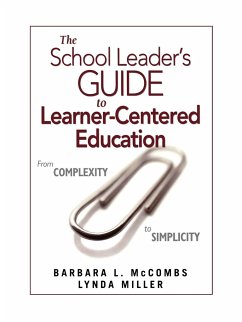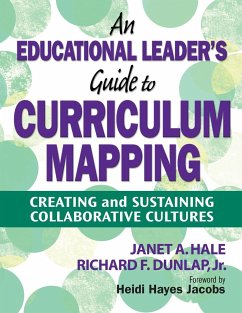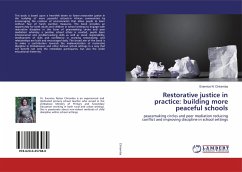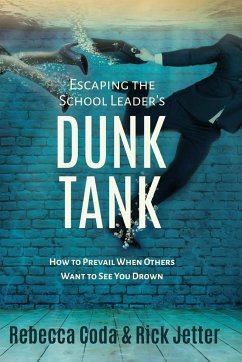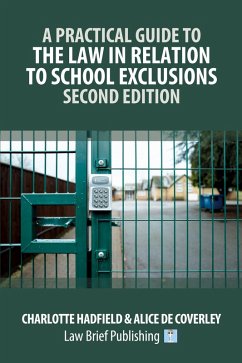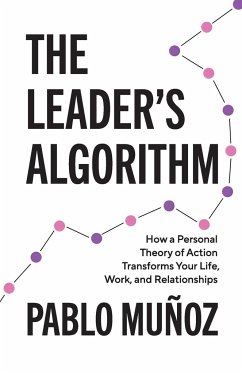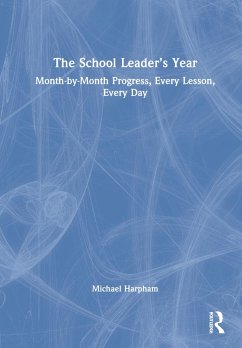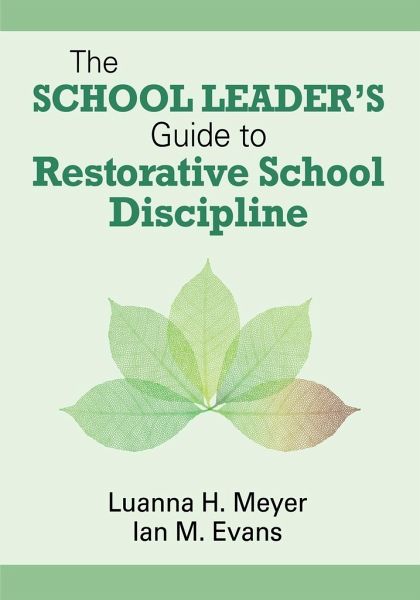
The School Leader's Guide to Restorative School Discipline
Versandkostenfrei!
Versandfertig in 1-2 Wochen

PAYBACK Punkte
18 °P sammeln!




A positive model for restorative discipline The authors provide a research-based and field-tested model that gives school leaders more productive alternatives to punishment, exclusion, and out-of-school suspens
Luanna H. Meyer is professor of education (research) and director of the Jessie Hetherington Center for Educational Research at Victoria University in New Zealand. She is also emeritus professor at Syracuse University in the U.S. and adjunct professor at Griffith University in Australia. Since receiving her PhD from Indiana University, she held faculty positions at the University of Hawai'i, the University of Minnesota, Syracuse University, and Massey University prior to her current position. While at Syracuse University, she co-founded the Inclusive Elementary and Special Education Teacher Education Program and coordinated the doctoral program in special education. She also led numerous federally funded research and development projects, including a five-year research institute on the social relationships of children and youth with diverse abilities and the ten-year New York Partnership for State-wide Systems Change. Throughout her career as a teacher educator and educational researcher, Luanna has been committed to developing practical, evidence-based approaches that can be implemented in real life, typical situations and settings. She works closely with school leaders, teachers, and behavior specialists towards achieving inclusive schools where all children and youth belong and feel valued. Her contributions to the development of positive approaches to behavior problems are acknowledged by her appointment to the Technical Review Committee on Behavior for the National Center for Students with Disabilities who Require Intensive Interventions led by the American Institutes for Research. She was among the first to demonstrate that even the most severe behaviour can be managed with positive approaches, supported by her published research conducted in typical settings with children with severe behaviour disorders, autism, and other disabilities. In New Zealand, her current federally funded projects include research on culturally responsive behavioral intervention in schools; culturally responsive pedagogies for teachers; effective school-based behavioral intervention practices; and the impact of assessment design on student motivation and achievement in secondary schools across the curriculum. A major focus of this work is on effective policy and practice to meet the needs of an increasingly diverse regular education school community. Luanna has been invited to speak in eight countries and 30 US states about her work, and she has published more than 120 journal articles and book chapters. Her 12 books include Making Friends: The Influences of Culture and Development, Critical Issues in the Lives of People with Severe Disabilities; Behavioral Intervention: Principles, models, and Practices; The Syracuse Community-Referenced Curriculum Guide; Non-Aversive Intervention for Behavior Problems: A Manual for Home and Community; and An Educative Approach to Behavior Problems: A Practical Decision Model.
Produktdetails
- Verlag: Corwin
- Seitenzahl: 186
- Erscheinungstermin: 5. April 2012
- Englisch
- Abmessung: 254mm x 178mm x 10mm
- Gewicht: 362g
- ISBN-13: 9781412998604
- ISBN-10: 1412998603
- Artikelnr.: 34461239
Herstellerkennzeichnung
Libri GmbH
Europaallee 1
36244 Bad Hersfeld
gpsr@libri.de
Für dieses Produkt wurde noch keine Bewertung abgegeben. Wir würden uns sehr freuen, wenn du die erste Bewertung schreibst!
Eine Bewertung schreiben
Eine Bewertung schreiben
Andere Kunden interessierten sich für




